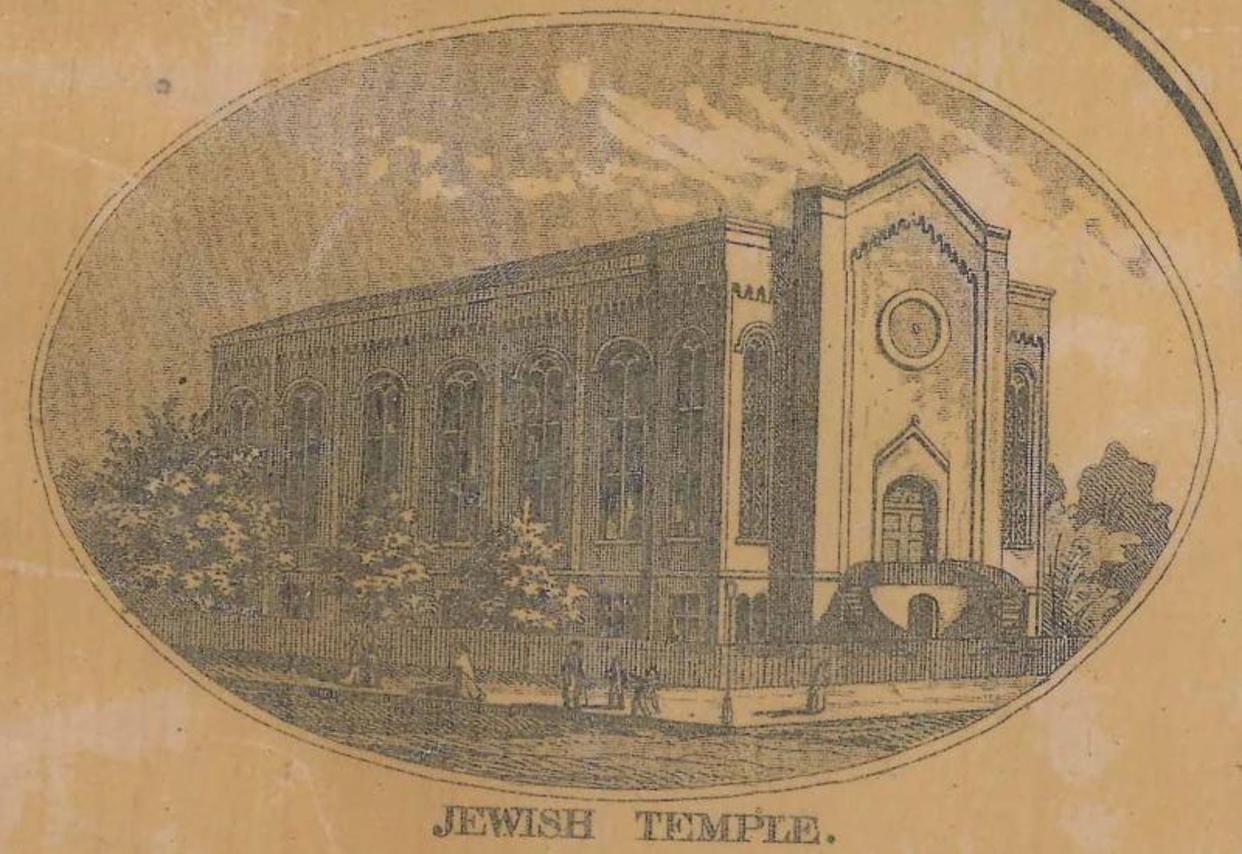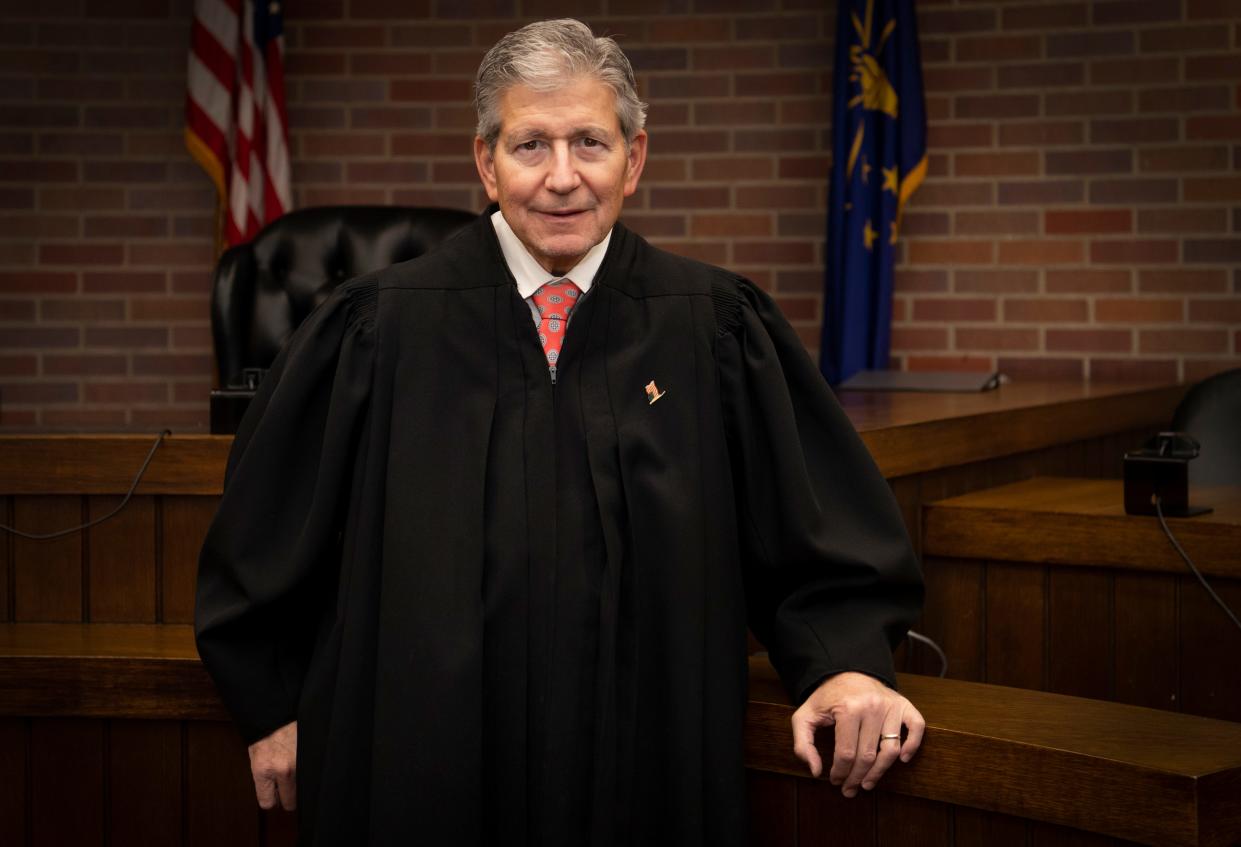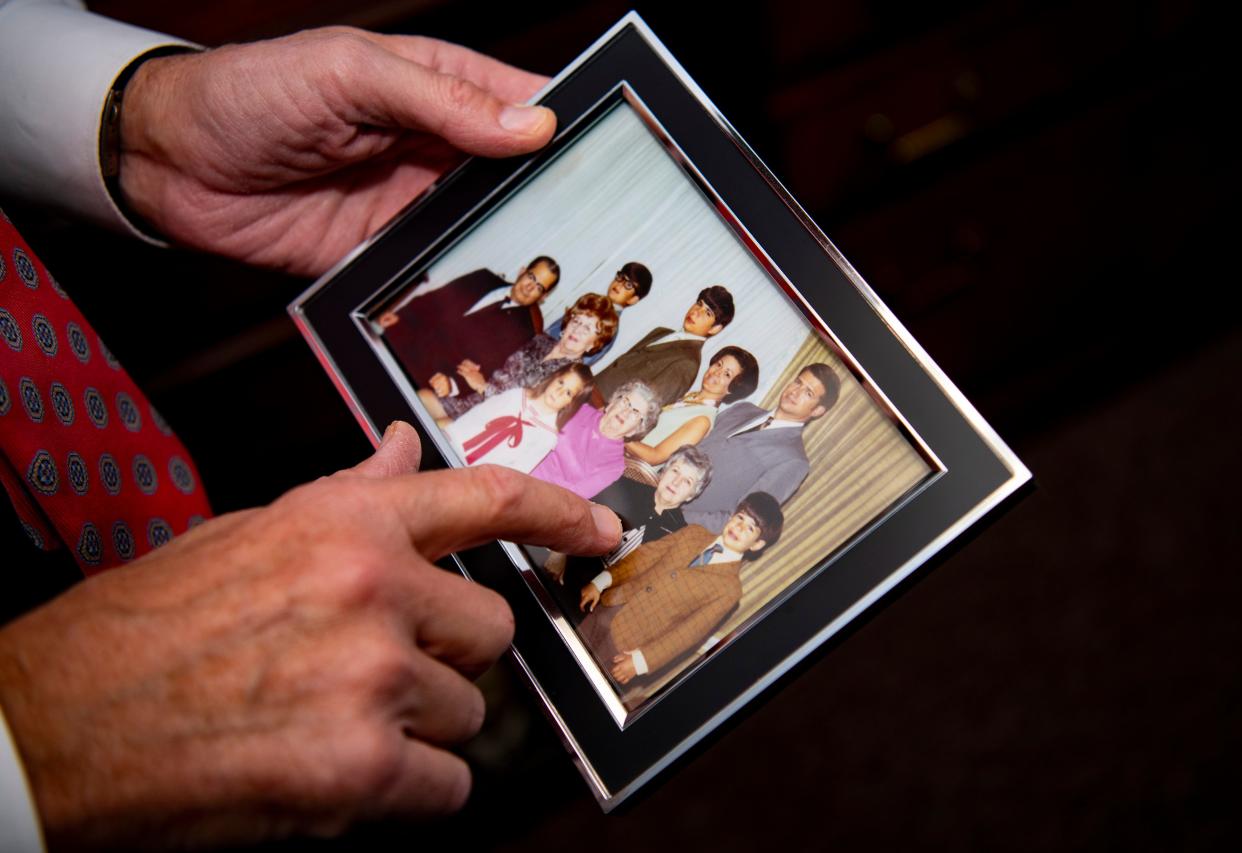Antisemitism has long history in Evansville area, and it's still around today

EVANSVILLE − An Evansville Jewish couple drove to Indianapolis to visit a medical specialist a few weeks ago. They reached the elevator at the same moment as a man heading to an upper floor.
His arms bare, the man's arm exposed a visible tattoo, a large Swastika, the symbol used by the Nazis in World War II.
The wife told a reporter later, "What would this man think if he knew he was on an elevator with two Jews?"
Antisemitism is alive and well in Indiana and all over the world, just as it has been for centuries. The Anti-Defamation League (ADL) has tracked reports of antisemitism in the United States since 1960 and notes that in 2023, "Over three-quarters of Americans (85 percent) believe at least one anti-Jewish trope, as opposed to 61 percent found in 2019.
Rabbi Gary Mazo, who has served Temple B'Nai Adath Israel for a decade, notes that his local congregation has worked with other faith leaders to create a welcoming spirit and educate others about Jewish traditions and beliefs. Along with the late Rev. Kevin Fleming, Rabbi Mazo formed One God One Community, which focused on bringing together different faith traditions for study and understanding.
"We often bring community and school groups to the Temple to learn about Judaism," the Rabbi said. "There is far more that unites us than divides us.”

While talking to a high school group, a boy asked the Rabbi, "Why don't you accept Jesus?" and the Rabbi answered him, "Why do you?" The boy was puzzled. The Rabbi said, "That is the challenge of our faith. And we will not say we're right and you're wrong."
Jews first settled in the Tri-State in 1837 with the arrival of the Gumbert family, according to an archival booklet published by Temple B'nai Adath Israel (TBAI) Like many of their neighbors, the first Jewish residents were German immigrants who crossed the Appalachian Mountains by wagon or stagecoach, then floated down the Ohio River from Pittsburgh. Evansville's first synagogue was formed in 1857, and Jews would worship in reform, conservative, and even orthodox congregations here. Today’s Temple B’Nai Adath Israel merged from two local reform and conservative congregations.
More: With help from Spielberg and others, Evansville library maintains Holocaust survivor stories
About half are what the Rabbi referred to as "legacy" families, those with long roots going back in the community, while the other half are people who have moved to the area. He noted that several individuals and families have converted to Judaism here during his tenure.
What was it like to grow up in Evansville as a religious minority?
Judge Wayne Trockman grew up in a loving Evansville family with four children, "with Judaism very much a part of my life." Today, Trockman is a judge in Vanderburgh Superior Court.
His uncle, aunt, and four cousins lived across the street, so he was never without playmates. The two families alternated hosting Friday night Sabbath dinners. After dinner, the families walked several blocks to the Washington Avenue temple to worship at Shabbat services.

"We all learned Hebrew. We were taught to read from the Torah. Reading the Torah is quite different than reading or understanding Hebrew. We went to Sunday School and were confirmed at 15. Then we went to train for our Bar Mitzvah," Trockman explained.
Yet, he added, Jews couldn't join the Evansville Country Club or eat at Pete's Supper Club, a popular local restaurant. Trockman remembers his parents going out to dinner with other Jewish couples at places where they were welcome.
As a child in the 1960s and in college in the 1970s, he experienced antisemitism. After class, an elementary school teacher lined up her young students and tapped her finger on Trockman's chest. She said to him, "You know you are going to flunk this class, Jew Boy." Trockman said she repeated it.
Trockman admitted he was afraid to tell his parents about the teacher.
Trockman left Evansville to study at Indiana University, where he attended Hillel for Sabbath services on Fridays.
After his first year at college, Trockman came home to work for the summer. His father got him a job driving a dump truck. Trockman said his fellow employees met before work for coffee in the company garage. Often, the older men commented to Trockman, "You know we're going to put you in an oven."
"You are a 17-year-old kid in that summer job, and a 50-year-old man is going to put you in an oven," he remembered. "That's the kind of hazing that was expected. If you couldn't put up with it, you didn't belong in that garage."
Trockman added, "I believe antisemitism is as bad today as it was then."
Trockman, however, finds comfort in both his family of origin and his own family.
"It was important for me to have a home base, having family come together on Fridays, lighting the candles," he said. "As a kid, we used to alternate reciting the prayer over the candles, "Hear, O Israel: God is our Lord, God is one."
Trockman's sons celebrated their Bar Mitzvah, attended Sunday School, and were confirmed.
The news recounts near-daily incidents of antisemitism in America. Yet many people in our community work to promote Holocaust education and empathetic understanding of other faiths, traditions, and cultures.
Retired WEHT-ABC25 producer Stan Newman is making a documentary that will premiere in 2024 about the survivor parents of Irene Rechnic, who funded the Rechnic Holocaust Series at the University of Southern Indiana.
Members of the local temple, other religious organizations, groups such as The Committee to Promote Respect in Schools, and many others advocate against antisemitism here. These individuals and groups do not choose silence over speaking out for justice and human rights.
In her iconic "Diary of a Young Girl," Anne Frank spoke presciently, not knowing her life would end early, but her legacy would live forever: "Our choices fashion our lives. First, we make our choices. Then our choices make us."
This article originally appeared on Evansville Courier & Press: Antisemitism has history in Evansville area, and it's still around today
